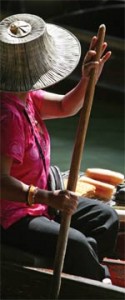Every spring in the month of June, hundreds of thousands of high school and college students graduate at special commencement exercises across the United States and many other countries. What is common to almost all commencements is the music that is part of the ceremony.
As Christmas carols are unique to the holiday season so is one particular piece common to most of these graduation exercises. That piece is Edward Elgar’s Pomp and Circumstance March. It is probably the most played piece of music in the month of June, literally performed thousands of times. Unfortunately, it is rarely heard at other times of the year. This is regrettable, as this is a great piece of music that would be an excellent selection on any concert program.
The March
The Pomp and Circumstance March is not just one piece but one of five marches all called Pomp and Circumstance. The one that is most played today is number one in D. It was premiered in 1901 and became very popular almost from the beginning of its public performances. Elgar actually wrote some sketches for a sixth march but it was never completed. The Sousa band recorded number one as early as 1904.
“Written with an honest pride in Britain’s love of ceremony, the march’s melody was requested by King Edward VII to be used as the coronation ode theme in 1902,” according to Norman E. Smith’s March Music Notes. An interesting side note is, for years it was the required accompaniment for newsreel glimpses of Britain’s Royal Family.
In regard to the slow section or trio in the march, Elgar said, “I got a tune that will knock’em – knock’em flat! A tune like that comes once in lifetime.” The trio section would later be named. Land of Hope and Glory.
The Composer
Sir Edward William Elgar (1857-1934) was born in Broadheath, England into a musical family of modest means. His father was a musician who for 37 years was primarily an organist at St. Georges Catholic Church. When the senior Elgar was not working at his music shop he also composed and arranged pieces for different combinations of instruments. Therefore, it was not unusual that Edward received his early musical training from his father.
Elgar had varying abilities on a number of instruments including: violin, organ (he often substituted for his father at the church), bassoon, cello and trombone. Young Elgar had a practical working knowledge of these instruments which was valuable for writing his compositions.
Considering his advanced compositional skills it is interesting to note that he was basically self-taught after his early training by his father. He has been described as a self- taught ‘Edwardian’ Englishman.
The road to pre-eminence as a composer of international fame was not an easy one. He was a Roman Catholic in predominantly Protestant England, a Victorian provincial society.
In the 1880’s and the 1890’s his style matured and he gained valuable experience as he conducted and composed for local musical organizations. Just after the turn of the century his reputation gained considerable acclaim and he began to garner awards and honors. Elgar was knighted in 1904 and numerous honorary degrees followed not only from English Universities such as Cambridge and Oxford but from Universities from other countries including the United States.
In 1905 he was invited to Yale University to receive an honorary Doctor of Music degree. At that commencement ceremony Pomp and Circumstance was played as a recessional. This was most likely one of the very first times it was used as a graduation march. Today it is usually used as a processional in high schools and colleges.
Elgar was one of the first composers to take the gramophone seriously. Between 1914-1925, he conducted a series of acoustic recordings of his compositions. Musicologists have said that Elgar was the first English composer to win international recognition in more than 200 years.
His other well known compositions are the Enigma Variations of 1899 which was his first big success and his two symphonies Number One in A Flat and Number Two in E Flat. Elgar, of course, wrote many other pieces in all forms of music.
H.D. McKinney and W.R. Anderson in their book Discovering Music wrote: “in many ways he was the typical nineteenth century Englishman; he was the consummate craftsman, the reserved, proud, thorough gentleman.”
Mark your calendar for the Danville Community Band’s annual free Spring Concert, Sunday, June 17, 3:00 p.m. at Community Presbyterian Church, 222 West El Pintado in Danville.
Please submit your questions and comments to banddirector01@comcast.net
Visit our website at www.danvilleband.org for up-to-date information about the Danville Community Band



